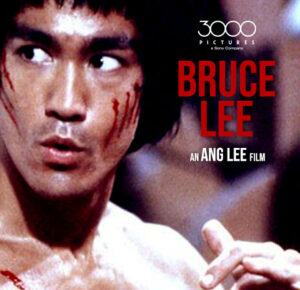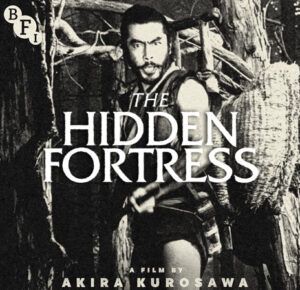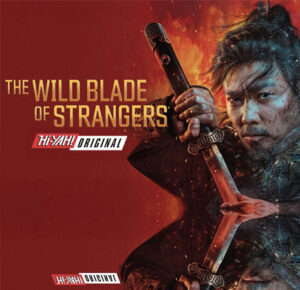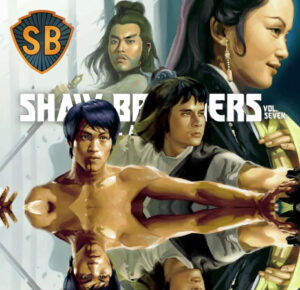
Fire of Conscience DVD (Vivendi)
There’s plenty to get excited about this week, especially if you’re a fan of giant monsters and dinosaurs. So without further adieu, let’s take a look at some Asian and genre-related blu-ray and DVD releases for 10/25/11:
ASIAN CINEMA
Shaolin (blu-ray/DVD) – Benny Chan’s 2011 ode to the Shaolin Temple features an all-star cast including Andy Lau, Nicolas Tse, Fan Bingbing, and Jackie Chan
Fire of Conscience (DVD) – Dante Lam’s riveting 2010 Hong Kong cop thriller stars Leon Lai and Richie Ren
Destroy All Monsters (blu-ray) – man in suit! Man in suit! This 1968 kaiju epic features Godzilla and a whole host of other monsters throwing down over Tokyo, now in glorious hi-definition courtesy of Tokyo Shock
City of Life and Death (blu-ray/DVD) – this 2011 Chinese film takes a haunting look at the 1937 massacre now known as the Rape of Nanking
FOREIGN CINEMA
Rare Exports: A Christmas Tale (blu-ray/DVD) – this cult favorite 2010 dark Christmas fable arrives from the country of Finland. Despite the presence of St. Nick, this ain’t for the little ones!
Attack the Block (blu-ray/DVD) – this much buzzed about 2011 UK sci-fi flick features inner city kids up against interstellar aliens
Identification of a Woman (blu-ray/DVD) – the Criterion Collection offers this 1982 film from acclaimed Italian director Michelangelo Antonioni
MAINSTREAM
Jurassic Park Ultimate Trilogy (blu-ray) – finally! Steven Spielberg’s beloved series about an amusement park full of man-hungry dinos arrives on blu-ray in this box set containing all three films from 1993, 97, and 2001 respectively
Captain America: The First Avenger (blu-ray/DVD) – Marvel Comics’ star-spangled avenger leaps onto the big screen in this 2011 feature film starring Chris Evans
The Conversation (blu-ray) – Francis Ford Coppola’s 1974 thriller starring Gene Hackman arrives on blu-ray courtesy of Lionsgate
The Three Musketeers (blu-ray/DVD) – this 2011 modern day action movie comes courtesy of the notorious shlockmeisters at Asylum Entertainment, but judging from the trailer it is not without its b-movie pleasures
HORROR
Zombie (blu-ray/DVD) – Blue Underground gives the hi-def treatment to Lucio Fulci’s 1979 grisly masterpiece
House By the Cemetery (blu-ray/DVD) – Blue Underground is also releasing this 1984 film directed by Lucio Fulci, which happens to be my personal favorite movie by the horror auteur
Island of Lost Souls (blu-ray/DVD) – the Criterion Collection releases this 1932 pre-Code adaptation of H.G. Wells’ classic novel “The Island of Dr. Moreau,” co-starring Bela Lugosi
A Serbian Film (blu-ray/DVD) – this 2010 horror film from Serbia has earned a reputation for its sexual violence and utter depravity
Faces in the Crowd (blu-ray/DVD) – Millennium Entertainment offers this direct-to-video thriller starring Milla Jovovich and “Nip/Tuck’s” Julian McMahon
The Countess (DVD) – French actress Julie Deply writes, directs, produces, scores, and stars in this 2009 horror movie based off the legend of Elisabeth Bathory, who was said to bathe in the blood of virgins. Also starring William Hurt
Atrocious (DVD) – Bloody Disgusting Selects offers this 2010 Spanish language “found footage” horror film about a brother and sister who discover a terrible secret hidden in the area around their family’s cottage
Unhappy Birthday (DVD) – this 2011 British indie horror film is said to be inspired by classic Brit horror movies like “The Wicker Man.” I wonder if the title is an homage to the Smiths song?
Wrong Turn 4: Bloody Beginnings (blu-ray/DVD) – this 2011 release proves no horror series ever truly dies, they just turn into direct-to-video franchises
Vodoo Dolls/Madonna (DVD) – Maria’s B-Movie Mayhem offers two 1990 made-for-Canadian-video horror movies
Interested in any of these movies? If so, we hope that you’ll consider ordering from our affiliate to help support this site. Thank you!





















Be the 1st to Comment